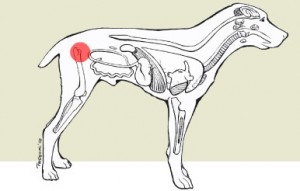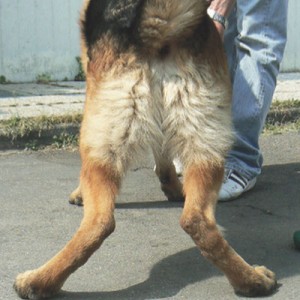Hip Dysplasia is a typical degenerative illness amongst dogs. Some people commonly think of it as a kind of arthritis, but this is not so. Pet dogs who have hip dysplasia establish arthritis due to the disease, however, it is not arthritis in itself.
This illness is typically found in medium to large-sized dogs who have a rapid rate of development. This causes extreme discomfort to the animal and might affect the degree of their mobility. Hip dysplasia is an incurable illness. Even though you check it in its beginning stages, the best that you can do is to decrease the discomfort that your pet experiences or to obtain some corrective surgery, which includes a lot of risks.
and might affect the degree of their mobility. Hip dysplasia is an incurable illness. Even though you check it in its beginning stages, the best that you can do is to decrease the discomfort that your pet experiences or to obtain some corrective surgery, which includes a lot of risks.
The disease occurs when the hip joint is formed oddly. It will certainly cause some looseness in the joints that will give him numerous problems as a result. The common results are immobility and serious discomfort. Those who deal with an extreme kind of dysplasia are not able to move their backs at all. Dysplasia occurs in numerous degrees, from the slightest type to the complete dislocation of the hip socket.
 The leading cause of hip dysplasia in canines is through genetics. If one or both of the parents have genes that trigger hip dysplasia, then there is a large possibility for their offspring to acquire this condition, too. These genetic conditions are hereditary. It determines the possibility that your canine will receive the condition through his parents genes. Traits which are certainly determined by heredity, such as gender and color of the eyes, have a heritability factor of 1, suggesting that genetic factors cause this condition. Other conditions that are not obtained by heredity have a 0 heritability factor. Research has revealed that canine hip dysplasia has a heritability factor ranging from.25 to.85. It indicates that this illness has a 25 to 85 % chance of being inherited by the offspring. Other causes might include, injuries in the hips throughout the puppies early weeks, however, heredity is the major cause in the majority of events of canine hip dysplasia. Canine hip dysplasia has no cure.
The leading cause of hip dysplasia in canines is through genetics. If one or both of the parents have genes that trigger hip dysplasia, then there is a large possibility for their offspring to acquire this condition, too. These genetic conditions are hereditary. It determines the possibility that your canine will receive the condition through his parents genes. Traits which are certainly determined by heredity, such as gender and color of the eyes, have a heritability factor of 1, suggesting that genetic factors cause this condition. Other conditions that are not obtained by heredity have a 0 heritability factor. Research has revealed that canine hip dysplasia has a heritability factor ranging from.25 to.85. It indicates that this illness has a 25 to 85 % chance of being inherited by the offspring. Other causes might include, injuries in the hips throughout the puppies early weeks, however, heredity is the major cause in the majority of events of canine hip dysplasia. Canine hip dysplasia has no cure.
